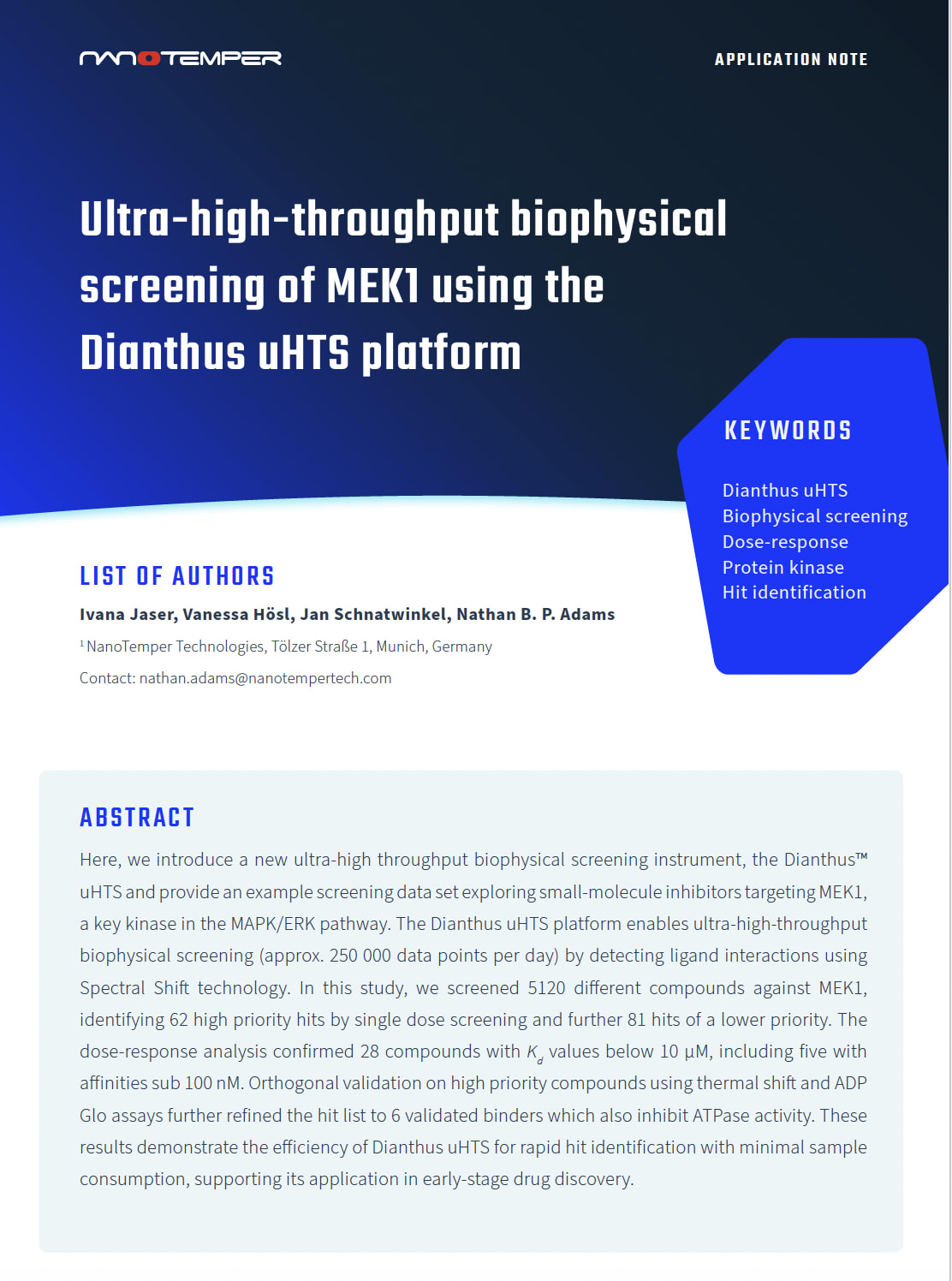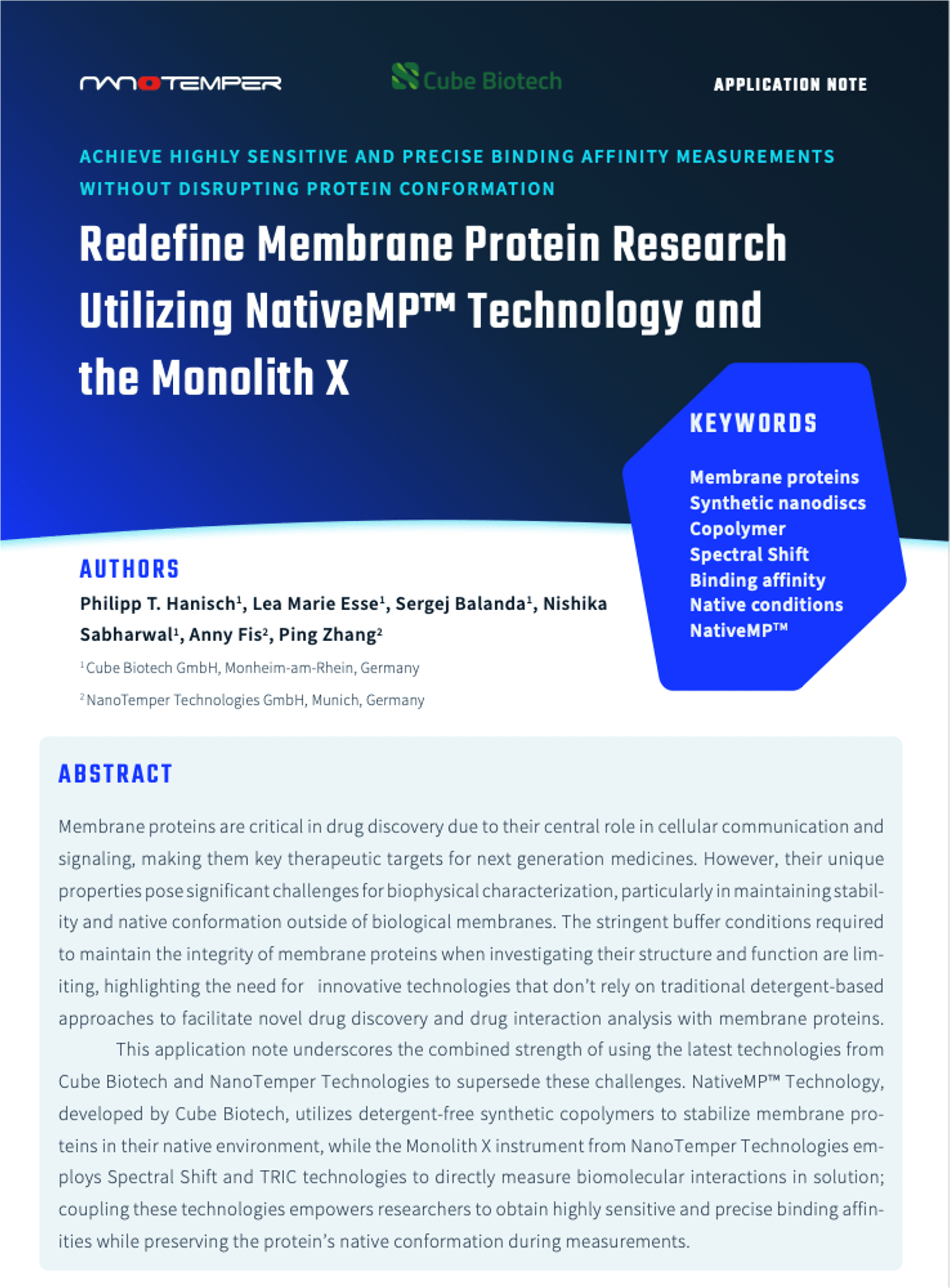Discover how the Protein Sciences group at Merck & Co. builds developability profiles for their monoclonal antibody variants. Get an in-depth explanation of the experiments they set up to obtain parameters that help them decide which candidates have the best potential to reach the market, and how they validated that the data they obtained to do this work matched up with previous profiles.
You’ll learn about:
- Why it was important for Merck to build developability profiles from biophysical stability attributes of their candidates
- Which parameters they measured to create these profiles
- Why a combinatorial approach was valuable to their workflow
- How they validated that the addition of DLS-derived parameters did not compromise their previous nanoDSF-derived data
Why it’s important to early discovery protein scientists:
The biologic drug development process is expensive, and often leads to time and money lost on candidates that never reach the clinic. Improved developability profiles enable researchers in the early discovery or pre-formulations stages to select candidates that have a great chance at clinical success. Merck used a combinatorial approach to building their developability profiles, using both thermal and colloidal stability information from a single platform to improve their candidate rankings.
Want to know about high precision tools for the combined characterization of thermal and colloidal stability of biologics? Learn more about Prometheus Panta







